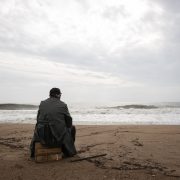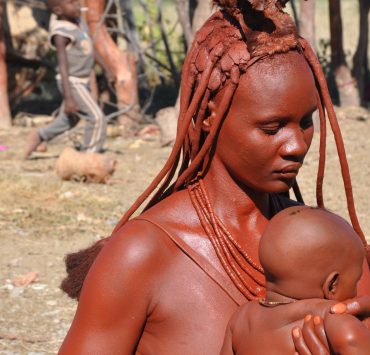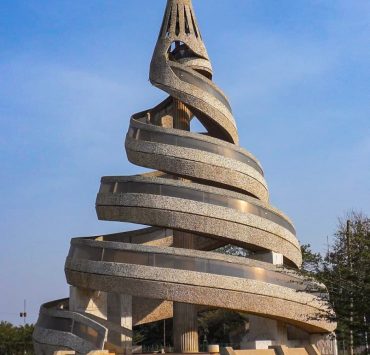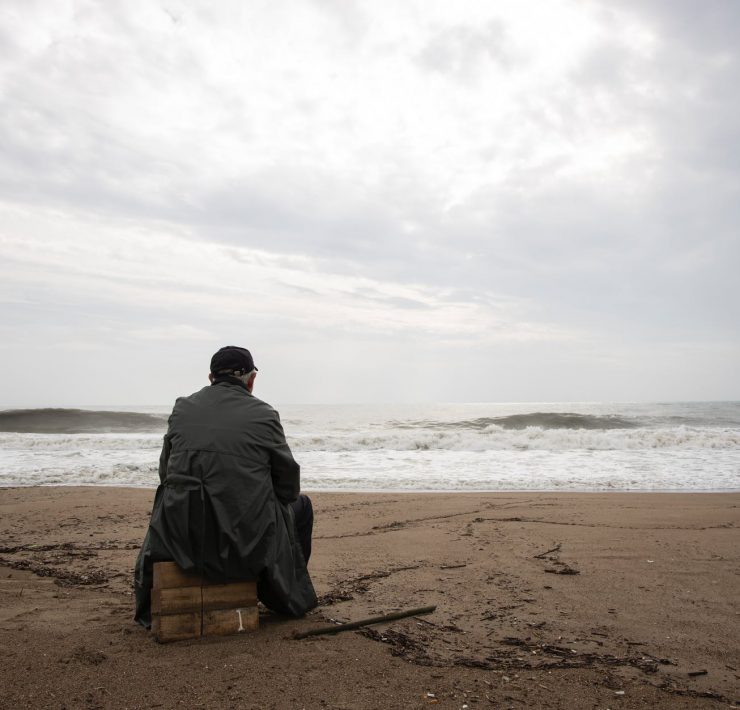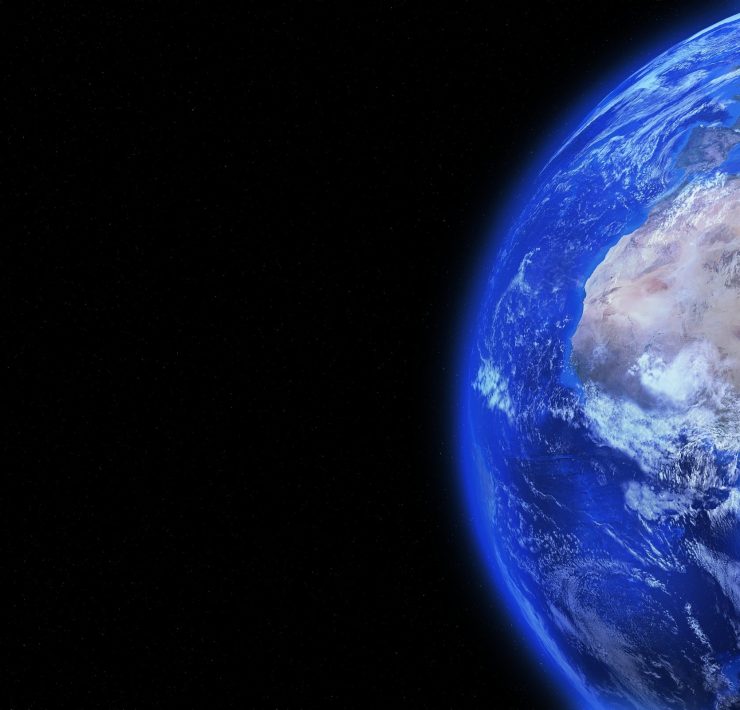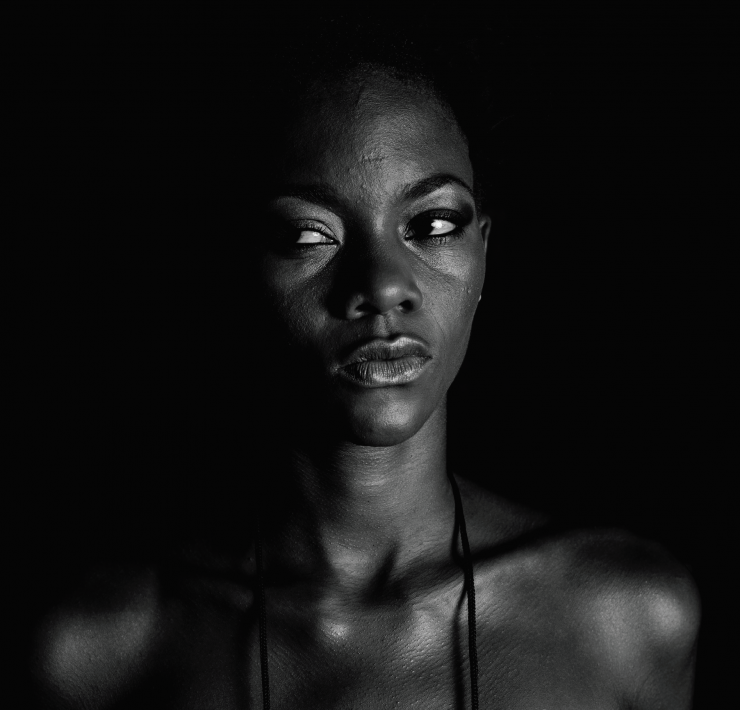CRABS-IN-A-BUCKET SYNDROME
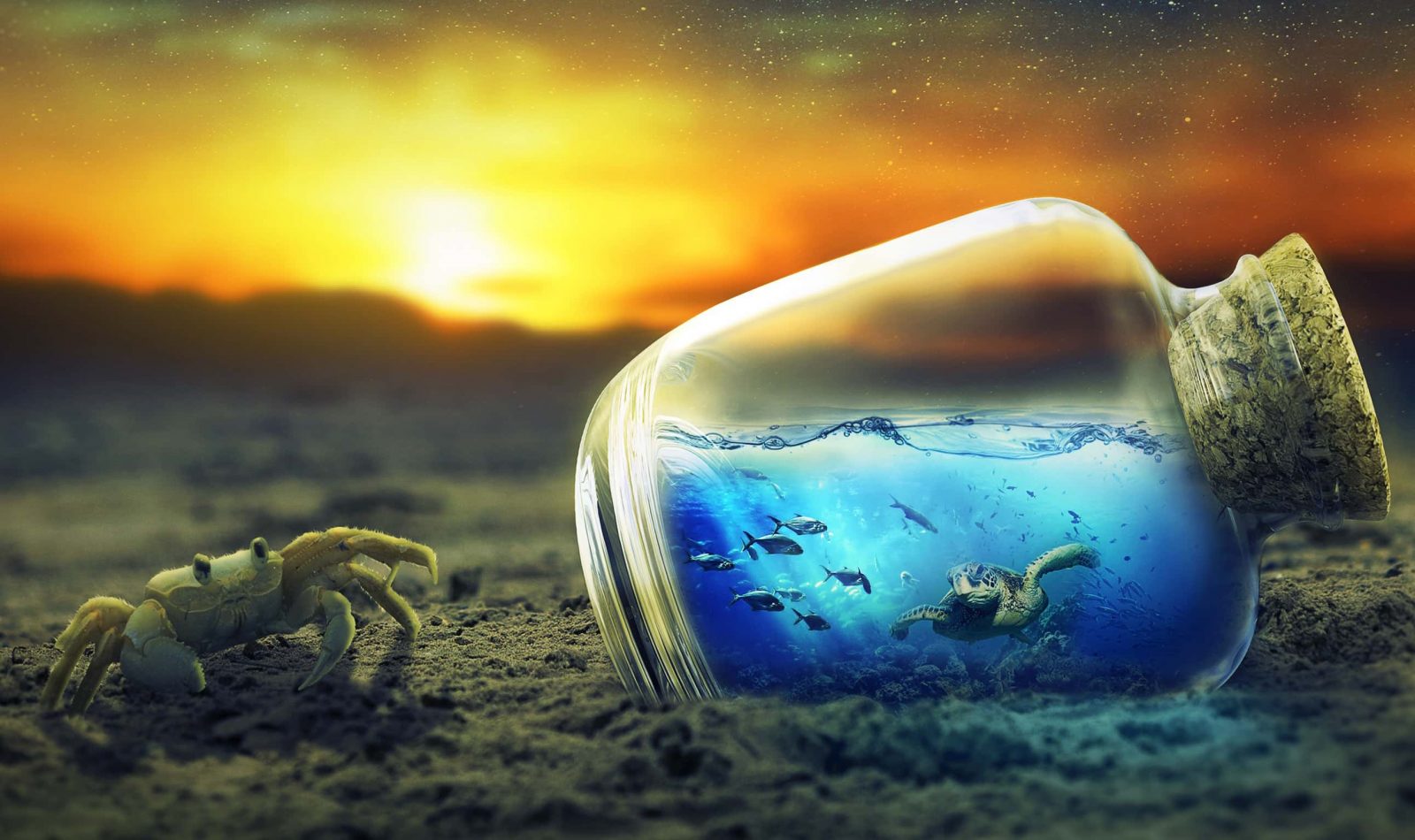
Samuel Phillips is a writer, graphic designer, photographer, songwriter, singer…
A VIRUS THAT IS DESTROYING AFRIKA
It’s a beautiful thing to see brothers (biological or not) working together in common unity (community) to achieve a common goal. Thriving nations, communities, corporations and whatever else, have all been built using this principle of unity towards a common goal and many more to come will be built on it. But when brothers, instead of working together in unity and building for a common interest, decide that in-fighting and acts of sabotage are the way to go, then their destruction and the destruction of their community is very near. For, while they fight among themselves, strangers use the distraction to take over their wealth. The bond of unity is such a powerful tool in the hands of a people that, even when the common goal is a negative one, it will still work. God Himself spoke concerning men coming together in one accord to build; He said, “Indeed the people are one and they all have one language, and this is what they begin to do; now nothing that they propose to do will be withheld from them.” (See Genesis 11:6)
It’s not news that one of the predominant reasons why Afrika is the way it is right now, is because we have more Afrikans who are comfortable and willing to sell the common good for personal gain, than those who will give their all to make change happen; even if it includes their lives. Great leaders who emerged from Afrika have been killed and what they stood for was destroyed by the West, just because someone close to them sold them out. We know these stories, so I won’t speak of them. But the question now is this, how did we get ourselves into this proverbial bucket that we keep fighting each other to prevent our escape from, and by that destroying the very things that should have built us as a people? In fact, why are we in a bucket at all?
Before I go further with this article and before I share my thoughts on the topic, let me quickly share with you a post I copied from a Facebook group. I believe the post clearly gives a live illustration of what this article is about. It was written by someone about the pain they experienced in setting up a production company. I think it speaks of much of the frustration that many across Afrika have experienced while trying to rise up.
He wrote:
“In 2008 my friend and I decide to start a revolution. How do we do it? Get out there, start cotton farming with a target of 200 tones each. My friend left for Lamu and I took the Tharaka Nithi route.
My idea was to rope in farmers by selling the “ Farming as a Business” concept to maximize space and output.
So I put together stakeholders (Equity Bank, Bayer EA, Kitui Ginneries, Ministry of AGRICULTURE, the hen Kenya Agricultural Research Institute (KARI) and my seven lead farmers.) The idea was to ensure that we provide the clean SEED, HUSBANDRY & MARKET which were the ingredients missing to spur the production.
Fast forward, in 2009, using my multilevel marketing skills, I manage to use a ‘tree’ of Seven to raise the number of farmers. So first we hold a meeting with the farmers and start a campaign to first buy all the cotton that was in the stores across the District in total we bought 65 tones of cotton in one week at Ksh 28/- which was the government recommended price. The brokers had been buying at Ksh 12/- the reason farmers stocked their cotton.
With each farmer recruiting 7 others and the new seven each recruiting 7 others, we had 4,136 farmers ready to get into the program. Each was supposed to do a maximum of 1 acre for the programme. This piece was to have two crops – cotton (a two season cash crop) and a choice of one other one season subsistence crop.
KARI and Kitui Ginnery supplied seed, Kitui Ginnery provided the market, Bayer EA provided the scouting and the spray programmes, while Equity Bank provided financing. Of course the Agriculture Ministry provided us with the regulatory support by blocking the zone for one buyer – Kitui Ginnery.
We are in business and in October 2009 we get planting and may 2010 we get the first harvest.
Together with Kitui Ginnery we negotiate with the government to have a cooperative society for the farmers as we prepare for the second round of the programme – the idea is to get the farmers have their own ginnery and spinning equipment for the youth to work on cotton material manufacture. Some guy in Kirinyaga was making the spinners that could be run by youth groups.
Season one is done and we have managed to product 360 tones of cotton. Hurraaaay!
Now the BAD! As we were preparing for the second season, the government finalized the formation of Cotton Development Authority who now takes over the cotton programmes from the ministry of Agriculture. Regional managers are appointed and with gusto they run to their regions to ‘grow’ cotton.
One afternoon I receive a call from someone who introduces themselves as the CoDA Regional Manager for Mt Kenya. By this time, the crop is flowering and the spray programmes we ongoing. He tells me that he had been given my number by the ministry coordinator in charge of cotton development (THE GUY WAS PART OF MY TEAM AND HAD HELPED ME BUILD THE STAKEHOLDERS TEAM). (emphasis mine)
Then followed the bomb, “am told that you have monopolized the cotton buying in Maara District, and I am here to tell you that cotton shall be bought by anybody anywhere”!
That was the end of the programme as brokers jumped in for cotton buying. By the time of closing the season, Kitui Ginnery only managed to access 200 tones out of the target of 430 tones. This means that Bayer EA could not recover their invoices as the farmers chose to sell where the inputs from Bayer EA couldn’t be recovered so that they can get their full returns without loan repayment.
The third season never happened as stakeholders pulled out. Brokers reigned, priced dropped back to Ksh 12/-, today there are less than 20 farmers doing cotton in the district.
That’s where we are as a country when it comes to production and industrialization. We are enemies to ourselves. Until we have strict government regulations and remove the liberalization in the agricultural sector, it will be difficult to get back to proper cotton and cloth production in Kenya.
Look at Ethiopia, they have very strict rules, full government involvement in their agricultural sector which brews order.
Had CoDA given us the space to stay in our cocoon, today we would be speaking a different language in Maara and the country at large.
That’s WHAT’S UP!”
Slave mindset, Capitalism, Crabs-in-the-bucket syndrome, fruits of the same evil tree
Did you notice that I placed (THE GUY WAS PART OF MY TEAM AND HAD HELPED ME BUILD THE STAKEHOLDERS TEAM) in caps?I did it intentionally to draw your attention to the very core of this article. But let me go on for the moment.
The slave mindset in a person can only be understood for what it is when one has taken the time to understand why on God’s earth someone, in this case, a white man would so hate and undermine an Afrikan that they would see him as worthless and only worthy of being taken as slave. If you can imagine the hate, the false sense of superiority, the hidden fear, the ungodliness and the mental virus that could make a person take another person as slave, and destroy his civilization, in order to create a twisted history that says Afrikans were never civilized before the coming of the white man, then you will understand what happens when a person, in this case, an Afrikan is demented by a slave mentality that makes him want to subject himself to compromise, because he was mandated by his “white masters” to do so. A slave mentality is one which makes an Afrikan man point his left hand in accusation against the white man for what he did against Afrikans, while his right hand is holding the chicken and chips of the very same white man that he is accusing. He simply can’t remove his heart and mind from the delicacies and the luxury that the betrayal of his own people to the white man will give him. So, he lives his life like his mentors: Blaise Compaore, Mobutu Sese Seko, and the many other mental slaves who sold out their friends and their people for cheap gains. I call them cheap gains because what they sold their friends and people for did not even belong to the white man in the first place, it belonged to them and their people. All they had to do was come together as a people and build together with the very resources they sold their souls for.
How interesting that the beautiful soul and the life of Thomas Sankara shows us, even until today, the evil of capitalism, both within the system of government in a nation, and in the evil heart that capitalists do business with. If for nothing more, he definitely was killed because he was going to shift the good people of Burkina Faso away from the evil of capitalism, by taking wealth and power away from the small ruling class and creating a more fair and even distribution of wealth among the people.
Capitalism says there is not enough to go around, so let me get all that I can get now, before others come. It’s the same with the slave mindset, which stems from the evil mindset of “Oh, I suffered so much when I had no opportunity and now that I do, I will take everything that is meant for others and keep it for myself and by that, rule over the others.” It’s a very sick situation that we need to snap out of as Afrikans.
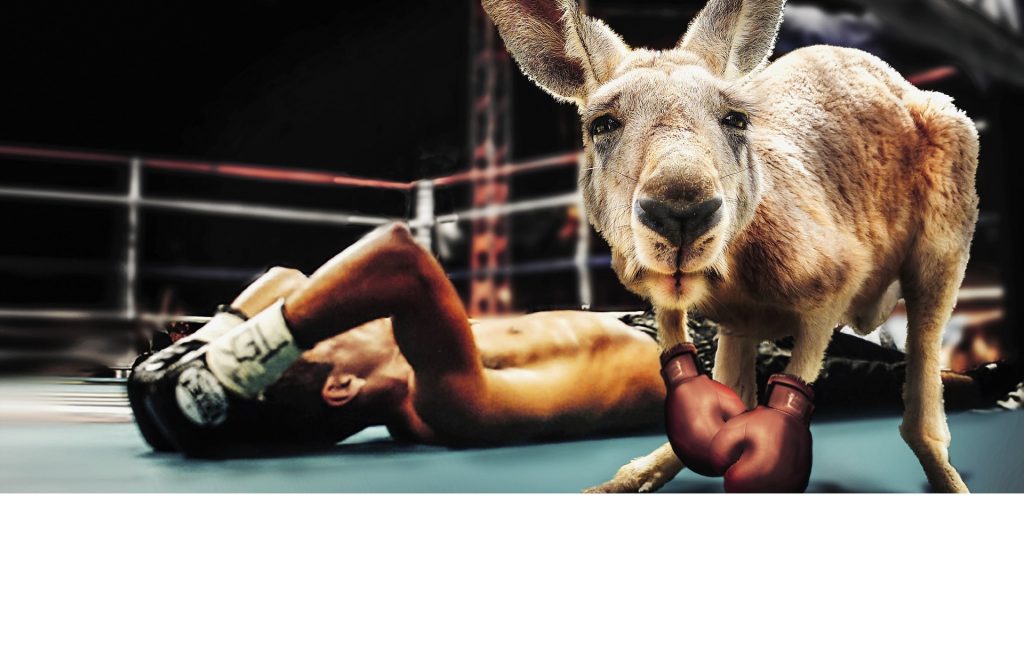
While slave mentality and capitalism try to take what is meant for everyone else and appropriate it for self, the crabs-in-the-bucket mentality does everything possible to pull others down, the moment they start to make a headway in life. While the slave mentality and capitalism are not honorable ways to live, the crabs-in-the-bucket mentality is even worse. Why? It denies everyone the opportunity to grow. And I mean both the person that is pulling others down and the people that are being pulled down do not grow. It’s an evil that has to stop.
The bucket is not the natural habitat for crabs
For the purpose of understanding how the crabs-in-the-bucket mentality works, when next you go to the market or someplace where they sell seafood, try to watch how crabs behave in a confined space. While they are aware that they need to move out of that confined place, because it’s not their natural habitat, they will never leverage on the strength of their numbers and their long legs to create a chain of crabs that will help them come out but, instead, they pull at each other and by that, they never escape their cage. It’s not natural for Afrikans to be in any form of confinement. Ubuntu is the liberating and natural mental and spiritual identity of the Afrikan people.
A return to life
We have done the bidding of the wicked West for too long, both in theory and in practice. Slave mentality, capitalism and the crabs-in-the-bucket syndrome are not endemic to Afrika. They are not part of our natural make up as Afrikans. Just like HIV AIDS, Ebola, Covid-19, to mention a few. These evils are imported attitudes that go directly against the principles of communal harmony, Ubuntu and the sense of brotherhood that are the bedrock of the Afrikan people. Because I have used crabs-in-the-bucket as an illustration, I know someone will say Afrika is the way it is because we were placed like crabs in a bucket by the West. This is not true in any way, because we are neither CRABS nor is our beautiful Afrika a BUCKET. We also made the choices that got us here in the first place and continue to make the choices that keep us trapped in cycles of futility. We are victims of our own inability to learn from the past, inability to make accurate judgments based on the truth of what we have today and then the mindset that want it all for selfish reasons. Deal with greed and you deal with the Afrikan problem. Period.
We cannot continue to be victims of our own unwillingness to do something about our circumstances.
We must change our hearts and mindsets about ourselves and how we deal with our continent as a people.
What's Your Reaction?
Samuel Phillips is a writer, graphic designer, photographer, songwriter, singer and a lover of God. As an Afrikan content creator, he is passionate about creating a better image and positive narrative about Afrika and Afrikans. He is a true Afrikan who believes that the true potential of Afrika and Afrikans can manifest through God and accurate collaborations between Afrikans. Afrika is the land of kings, emperors, original wisdom, ancient civilizations, great men and women and not some road-side-aid-begging poor third world continent that the world finds joy in undermining.








